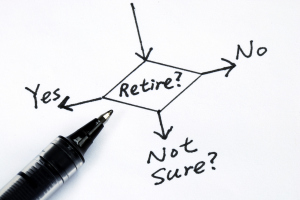 You’ve seen the titles on books in your local bookstore or on library shelves. Perhaps you couldn’t sleep one night, and the half-hour infomercial proclaimed this loudly. Or, you even received a solicitous e-mail, flyer or similar communication from an information-seller.
You’ve seen the titles on books in your local bookstore or on library shelves. Perhaps you couldn’t sleep one night, and the half-hour infomercial proclaimed this loudly. Or, you even received a solicitous e-mail, flyer or similar communication from an information-seller.
What is the title, proclamation, or solicitation of which I speak? It is various individuals trying to tell you that they have a “secret” to a business that will make you more successful than your wildest dreams.
There are stories of the accidental entrepreneur, or the person who stumbled into the opportunity where she can work five hours a week and spend most of her time running to the bank to make deposits. There are also stories of people who cash the big lottery tickets. My view is that neither is the norm.
But, I will tell you the secret to entrepreneurial success. I know, I should be selling this in a book that costs a lot, and is really centered around this one idea. This is the one idea that while it won’t guarantee your success, it will give you the best chance. Are you ready?
The secret to success in starting a new business is . . . Hard Work.
There are not too many real lazy man’s way to riches out there. If you ask virtually every small business owner what she had to do to make a go of her concern, the responses will be varied, but with a common theme. Keep plugging along. Just do what you need to do. Put in the time. Make it your number one focus. Stay honed in on your goals and you can reach them.
You have the man who emigrated from his homeland to the United States, started a submarine sandwich shop that’s open seven days a week from 6 AM to 10 PM, and he’s there virtually every hour of every day.
You have the contractor who specializes in kitchens and baths, and who walked through neighborhoods on foot rubber banding flyers to thousands of doors.
You have the real estate agent who attends every networking meeting she can find to make more contacts in the community in which she wants to establish herself.
You have the musician sending out hundreds of e-mails, recording demos, and pounding the pavement looking for gigs. All of these newbie entrepreneurs are ramping up their businesses using old-fashioned sweat. It is the secret to most entrepreneurial success. You have to work hard. Sorry self-help books and informercials. There are rarely shortcuts.
If hard work is the secret to ramping up your business, then work-life balance is the secret to sustaining it.
I hear the howls of protest. I simply don’t understand your business, and the fact that you must work 80 or 90 hours a week to make a go of it. And while it’s true that this mutable law has exceptions — during start up, or periods of time that are critical to accomplishing tasks or projects for your venture or specific clients — I will acknowledge your protest and respectfully disagree with it.
At this point, I could entertain you with a plethora of quotes from various sages. You know you need to stop and smell the roses. You know you need to enjoy the ride. You know the words of wisdom gleaned from Jesus Christ to Albert Einstein.
But here’s the real truth. Even if you are a hard-nosed businesswoman, and are willing to affix your proboscis to a grindstone day in and day out, refusing to cater to the whims of those less committed than you, consider this.
Social scientists inform us that those who refuse to balance their work self with a personal life have an incredibly high risk of burnout. Burnout is problematic for most small entrepreneurs, and an unmitigated disaster for the professional. Want to have the burned-out surgeon perform your procedure? I thought not!
Bottom line, if you don’t pay attention to the life side of that elusive balance, you may do a disservice to your clients, quit prematurely, or worse yet, find yourself imperiled by physical, mental, or emotional distress, leading to serious problems. You understand that hard work is necessary to launch that business and make it a success. You need to further understand that to sustain that success long-term you need to pay attention to work-life balance. Failure to do so could cause both you, and your business, to flatline.

